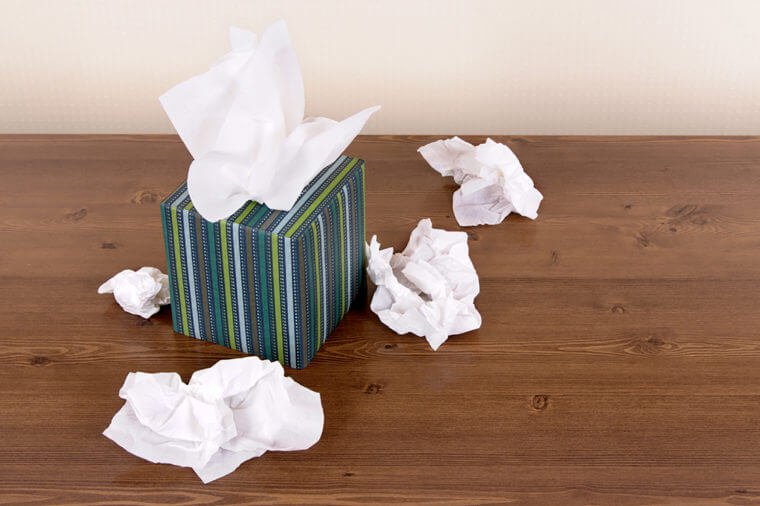Approximately one quarter of chronic rhinitis cases are not caused by allergies. Here’s how to know if you have non-allergic rhinitis, and the best way to go about treating it.
When your nose is acting up but allergies have been ruled out as the cause, non-allergic rhinitis (NAR) is the diagnosis that usually follows. Typically, your eyes, nose, and throat won’t itch when allergies aren’t at play, but NAR can involve a runny nose, congestion, postnasal drip or sneezing. These discomforts can drag on and become a hindrance to your quality of life.
The long list of possible triggers for NAR includes infection, temperature changes, cigarette smoke, chemical fumes, alcohol, stress, and a hormonal imbalance (often resulting from puberty, pregnancy, hormonal replacement therapy, or birth control). Even getting older can do it: a sub-type of NAR known as senile rhinitis appears to stem from an age-related dysfunction of the nerves inside the nose.
Medications can also set off NAR, from beta-blockers and NSAIDs to decongestant nasal spray. The latter may reduce swelling and unclog your nose during a cold or an allergic reaction, but when taken for more than five to seven consecutive days, it can trigger new swelling. For some people, taking nasal decongestants to counter decongestant-related symptoms becomes a vicious cycle.
Obviously, eliminating the root cause of NAR is the best way to rid yourself of the condition. However, for roughly half of NAR patients, there isn’t a clear cause. A recent study published in the Journal of Allergy and Clinical Immunology found that many of those sufferers could clear their symptoms by spraying with capsaicin, which happens to be the molecule that gives chili peppers their heat. The ingredient interacts with over-sensitive nasal nerves and has an effect that was first observed when patients from North America or Europe migrated to India, started eating spicy foods, and noticed their symptoms fading, says Dr. Peter Hellings, a professor of rhinology at the University of Leuven, Belgium, and the University of Amsterdam. Capsaicin isn’t sold as a drug, but some doctors or pharmacists may be able to order it and prepare the spray themselves.
Other types of NAR can be treated pharmaceutically, as well; for instance, the age-related variant responds well to nasal sprays containing a drug called ipratropium bromide. Your doctor should be able to help you figure out if any medications make sense for your particular case.












